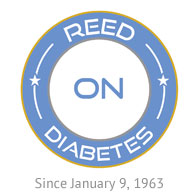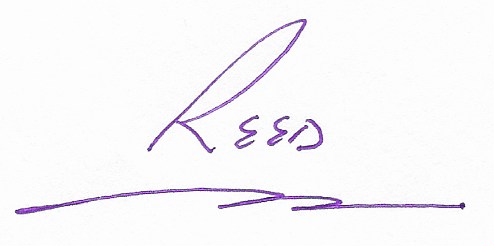Growing up, games and sports help fill our days and dreams. My game?
Baseball.
My Dad started it by playing catch when I was 4 or 5. That led to fifteen year of progressively competitive baseball. I developed a love for the game because friends played it and God gave me a strong right arm. (As Bruce Springsteen, sang in Glory Days, “I had a friend was a big baseball player, back in high school. He could throw that speedball by you.”) And it a helped that when I was ten years old, my hometown of Kansas City was awarded an American League expansion team. The Royals became competitive in the 70s and that made loving the game even easier.
Playing baseball with diabetes in the 60s and 70s made for some challenging times. Insulin was slower acting and inconsistent (ugh to that cloudy zinc suspension!). Blood meters weren’t yet available. That meant lows were unpredictable and sometimes severe. I had several bad reactions that happened while pitching. The first was in a high school game when my coach advised me to stop relying on my changeup. I wasn’t. My blood sugar was low, and I was throwing the ball as hard as I could. I chugged orange juice between innings and recovered in time to go out for the next frame. During another game, I saw two hitters in the batters box at home plate. I was low and had double vision. I didn’t recover from that one.
Despite these challenges, there were many benefits. Here are a few of the ways the game of baseball helped me live with diabetes:
Mindful Escape
When I played baseball my mind was on the game. My focus was on what we were working on in practice, the score of the game, and playing it with teammates. Diabetes needs to be dealt with, but it’s nice to keep it in the background while on stage.
Likeness
By playing baseball, I was doing what my friends were doing. It was reinforcement that diabetes didn’t define me. I was playing our national past time with friends.
Exercise
As I began playing baseball competitively, exercise became more regular. That meant long distance running, wind sprints (and the resulting shin splints ), lunges, core work, and off-season weight training. Baseball was the primary reason I developed a commitment to exercise before age 20. Exercise has been a part of my routine since (3-5 workouts most weeks). Would I have developed a commitment to exercise as an adult? Maybe, but those exercise habits developed early in life sure helped during the demands of adulthood.
Commitment & Discipline
Baseball is a team support with individual responsibilities. It meant showing up for practices on time, knowing and executing expectations for your position and meeting standards of excellence. A chronic disease like diabetes comes with a toolbox full of responsibilities and standards. For me, baseball showed how commitment and discipline were prerequisite to learning and mastering anything. And that includes diabetes.
Learning from Failure
Baseball is a game of failure. Good hitters fail 7 out of 10 times. Pitchers give up hits and runs (I certainly did). Baseball taught me that failure is part of life. With failure comes learning and adjustments. Coaches at every level emphasized, “Learn from your mistakes … don’t make the same error twice.” At higher levels, physical errors were tolerated but not mental ones. As a pitcher, we were drilled in practice to run and cover first base on ground balls hit to the right side of the infield. In a close high school game against a rival, I was late getting to first base and the winning run scored. My coach was PISSED! My team was PISSED! I was PISSED! I never made the same mistake again.
Teamwork
Baseball is a team sport and playing baseball without teammates and coaches is ludicrous. So is diabetes. Like baseball, diabetes is best managed when teaming with others.
Coaching
In high school, one of my little league coaches encouraged me to try out for the high school team. I was busy with other activities and asked him why. His answer, “Reed, you might actually learn some new skills.”
And boy did I. After making the high school team, I learned how to properly throw a curveball, change up and timing on pickoff plays. I learned how to condition my body so I could pitch longer into games and the season. I broke through to a new level. In college, the balance I learned in my pitching motion improved my accuracy.
As a young adult I made a conscious decision to own my diabetes (this was 20 years after my diagnosis). Baseball taught me the value of good coaches and I sought help from professionals that knew more about the disease than me. That meant finding good endocrinologists, certified diabetes educators and nutritionists. Like baseball, my diabetes coaches helped develop skills that have improved the level of my diabetes care.
Sharing My Diabetes (or not)
For much of my life I was selective about who I shared my diabetes with. That included my baseball coaches and most teammates. Although I had some horrific lows while playing, I didn’t openly discuss what was going on with me (*). What a disservice to the game, teammates, coaches, opponents and me.
Pay it Forward
One of the wonderful things about baseball is the way the game is passed on to new generations. The tips, nuances and skills developed while playing the game are passed on to others that are starting their journey. As a father and adult, I played my part and coached baseball for ten years.
As I became more comfortable opening up about my diabetes, I started to talk with others about all things diabetes. How to parent it, work with it, the effects of alcohol, dating, medical professionals, medical devices and more. As I shared my learning, I received a lot of positive feedback. It felt good to help others. It’s a major reason I’m doing this site.
I am grateful for baseball. I found it fun, shared time with my Dad, shared time with my Son (!), made friends, and I looked forward to each practice and game. Although I didn’t know it at the time, it developed skills that made their way into my approach for living well with diabetes.
(*) I did not disclose my diabetes with my high school or college baseball coaches for fear they would cut me or reduce playing time. I wasn’t alone … Ron Santo of the Chicago Cubs did the same thing early in his baseball career.

